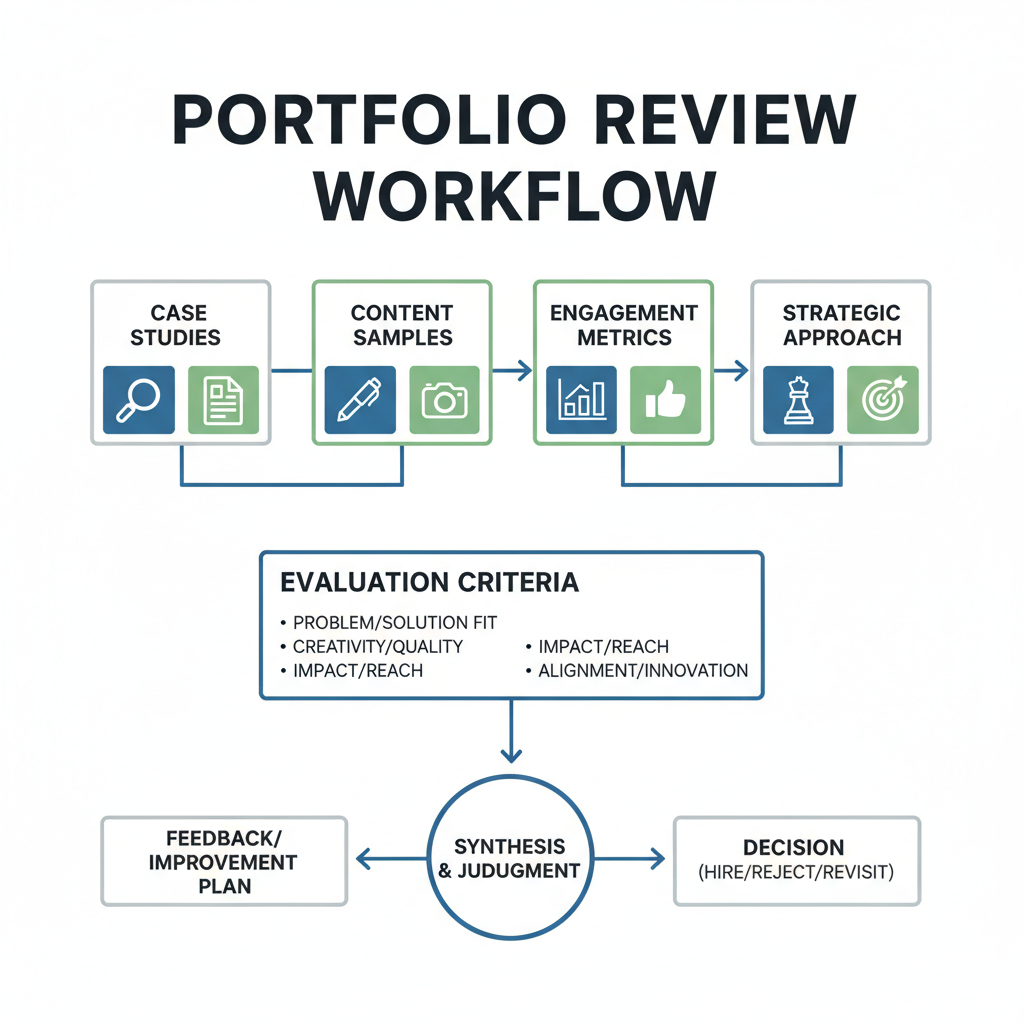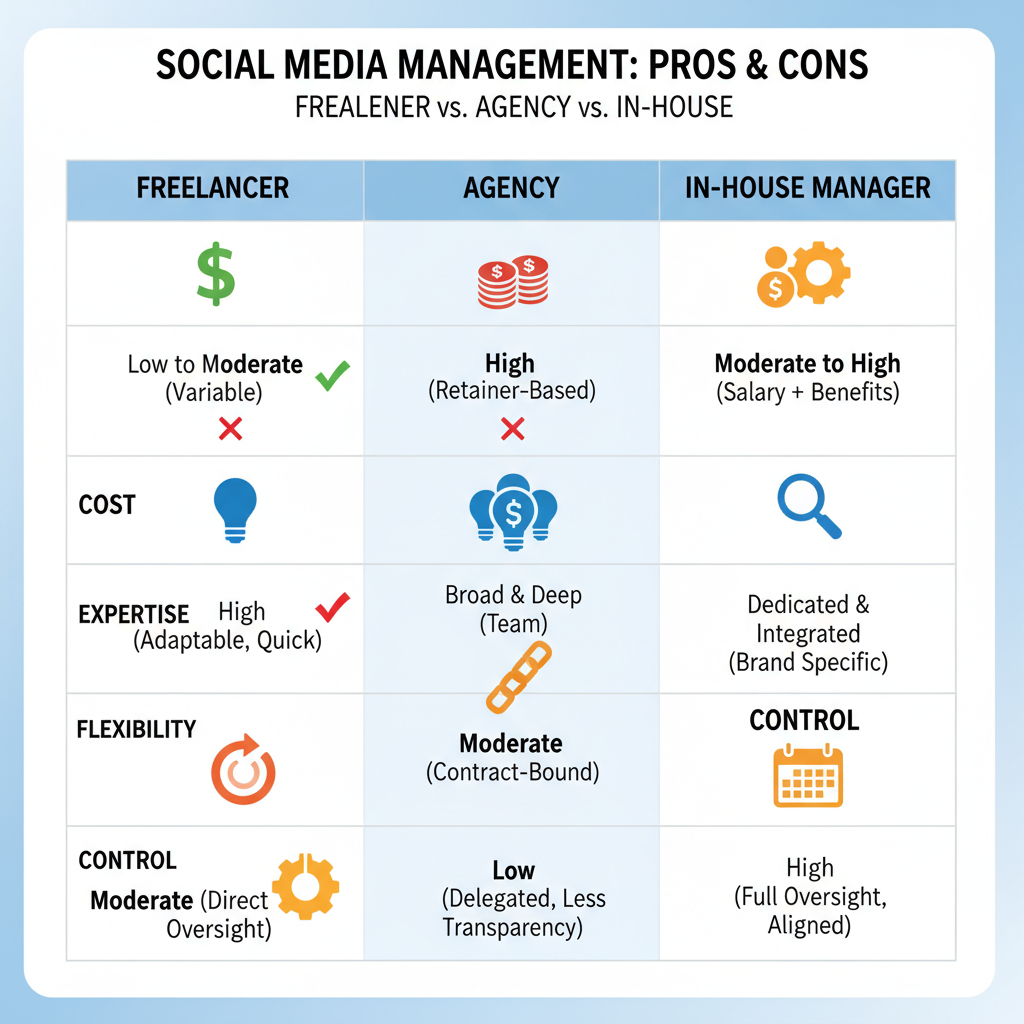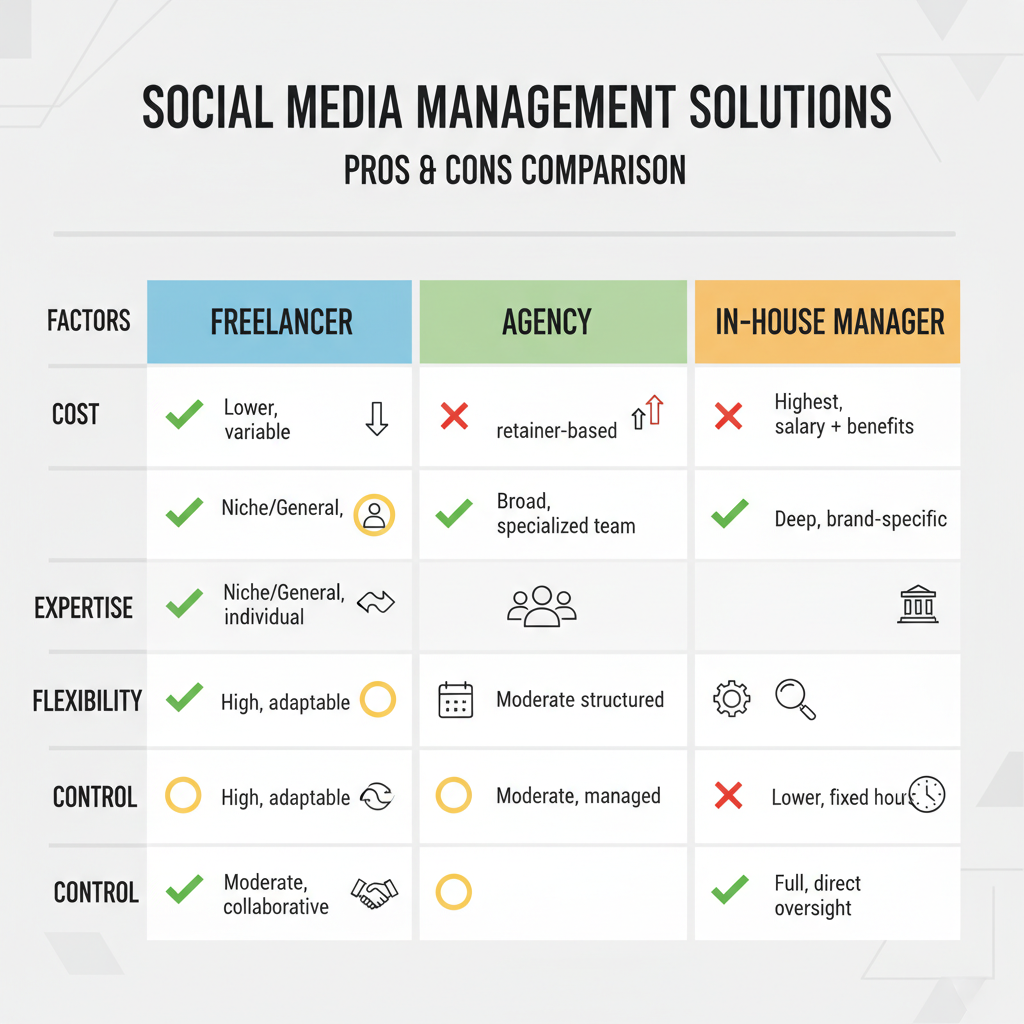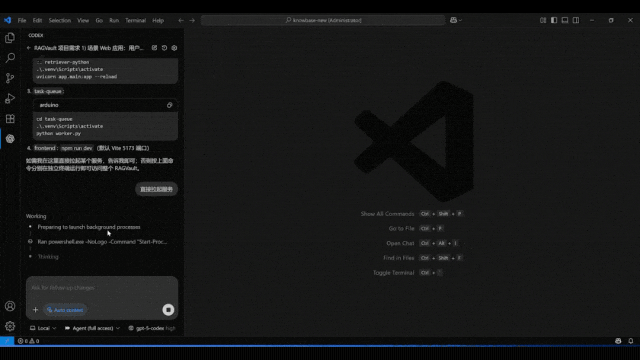How to Find a Social Media Manager for Your Brand
Learn how to find a social media manager who fits your brand, from setting goals and budgets to choosing between freelancers, agencies, or in-house hires.

How to Find a Social Media Manager for Your Brand
Finding the right social media manager can transform your brand’s online presence, driving engagement, loyalty, and revenue. Whether you are a growing startup or an established business looking to sharpen your digital voice, knowing how to find a social media manager who aligns with your strategic vision is essential. This guide outlines actionable steps, from defining your goals to building a collaborative partnership, to help you make the right choice.

---
Define Your Goals and Scope of Work Before Searching
Before approaching candidates or agencies, clarify exactly what you want to achieve. Ask yourself:
- Are you aiming to increase brand awareness, generate leads, or drive direct sales?
- Will you focus on B2B, B2C, or both?
- Which platforms matter most to your audience? (e.g., Instagram, LinkedIn, TikTok)
- Will the manager handle paid ad campaigns as well as organic growth?
- How often should content be posted, and how much engagement do you expect?
Defining your scope of work early allows you to communicate clearly, avoid misunderstandings, and save valuable time.
---
Determine If You Need a Freelancer, Agency, or In-House Hire
One key decision is choosing between a freelancer, an agency, or an in-house hire. Each option has unique benefits and limitations.
| Type | Best For | Pros | Cons |
|---|---|---|---|
| Freelancer | Small projects, startups, seasonal campaigns | Cost-effective, flexible schedules | Limited availability, varied skill depth |
| Agency | Comprehensive campaigns across multiple platforms | Full team support, diverse expertise | Higher cost, less brand intimacy |
| In-House | Consistent brand voice, ongoing needs | Close collaboration, long-term commitment | Salary & overhead costs, training required |
Evaluate workload, desired expertise, campaign scale, and budget before making your choice.
---
Set a Realistic Budget Based on Experience and Deliverables
Budget considerations should be tied to deliverables and experience:
- Number of platforms and posting volume
- Content needs (photography, video editing, copywriting)
- Paid advertising complexity and spend
- Reporting and analytics depth
Freelancers may charge hourly, per project, or via a monthly retainer. Agencies often work on fixed contracts. In-house hires require salaries and benefits. While costs vary, remember experienced managers can generate significant ROI by improving targeting, content quality, and campaign strategy.
---
Create a Clear Job Description with Specific Platform and Content Needs
A precise job description ensures you attract candidates whose skills match your needs. Include:
- Platforms to prioritize and posting frequency
- Content formats (e.g., Reels, Stories, infographics, livestreams)
- Day-to-day tasks: community engagement, influencer outreach, ad management
- Tools and platforms (Hootsuite, Canva, Google Analytics)
- Measurable goals and performance indicators
The more specific your description, the easier it is to find the right fit.

---
Where to Search: Job Boards, LinkedIn, Industry Groups, and Referrals
Multiple channels can help you connect with skilled professionals:
- Job Boards: Indeed, Glassdoor, or niche sites like FlexJobs.
- LinkedIn: Use targeted keywords such as “Social Media Manager” and filter by location or sector.
- Industry Groups: Participate in Facebook or Slack marketing communities.
- Referrals: Tap into your professional network for trusted recommendations.
A diversified search strategy expands your pool and improves your chances of finding the perfect match.
---
How to Review Portfolios and Case Studies Effectively
Reviewing a portfolio is more than just glancing at visuals—dig into the results. Look for:
- Measurable improvements in engagement, followers, or conversions
- Experience with multiple platforms and content types
- Work samples relevant to your brand’s tone and industry
- Evidence of creativity, consistency, and adaptability
Ask candidates to explain the strategic reasoning behind their work for deeper insight.
---
Key Interview Questions to Assess Strategy, Creativity, and Analytics Skills
Strong interviews go beyond basic questions. Consider asking:
- “Can you walk me through a full campaign you planned and executed?”
- “Which metrics matter most for Instagram vs. LinkedIn?”
- “How would you respond to a PR crisis online?”
- “Which scheduling and analytics tools do you prefer, and why?”
These reveal critical thinking, problem-solving abilities, and familiarity with key performance metrics.

---
Checking References and Verifying Past Results
Reference checks confirm a candidate’s work ethic and results. Ask former clients or employers about:
- Responsiveness and reliability
- Success in meeting KPIs
- Clarity and quality of reporting
- Capacity to adapt under pressure
Whenever possible, verify results through analytics reports or dashboard screenshots.
---
Setting Up a Trial Project Before Long-Term Commitment
A trial assignment can be an effective litmus test. Ideas include:
- One week of curated posts on a selected platform
- A small-scale paid ad campaign
- A comprehensive audit of your current accounts
Testing skills in real-world conditions greatly reduces hiring risk.
---
Onboarding Process and Setting Measurable KPIs
A structured onboarding ensures smooth integration:
- Provide brand guidelines, tone of voice, and audience insights.
- Grant access to necessary accounts, assets, and tools.
- Set SMART goals, such as “boost engagement by 15% in 90 days.”
- Establish reporting schedules and formats.
This structure aligns expectations and facilitates performance tracking.
---
Maintaining Communication and Performance Reviews
Frequent communication and scheduled reviews keep your strategy agile. Use collaborative tools like Slack, Trello, or Asana. Performance check-ins should:
- Compare progress against targets
- Address strengths and weaknesses
- Adjust tactics based on data
A feedback-rich environment fosters trust, innovation, and continuous improvement.
---
Summary and Next Steps
Knowing how to find a social media manager is a skill that goes beyond reviewing résumés—it’s about defining needs, reviewing proven work, and building a pipeline for consistent performance. By setting clear goals, selecting the right hiring model, and maintaining open collaboration, you can secure a partner who accelerates your brand’s digital growth.
Take the first step today: outline your scope, budget, and ideal platforms, and start reaching out to skilled professionals ready to elevate your online presence.



